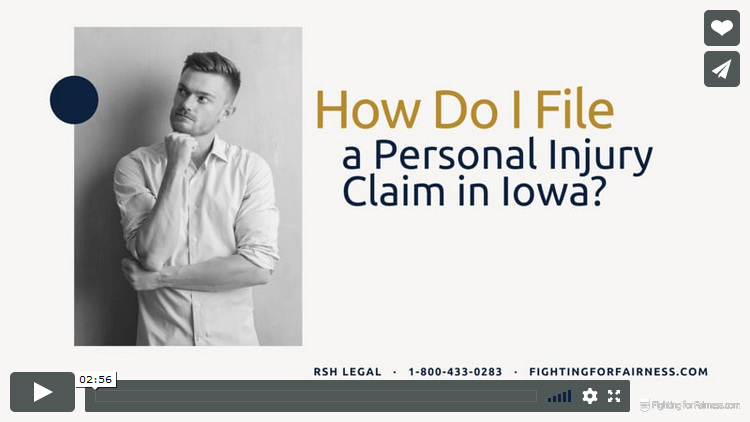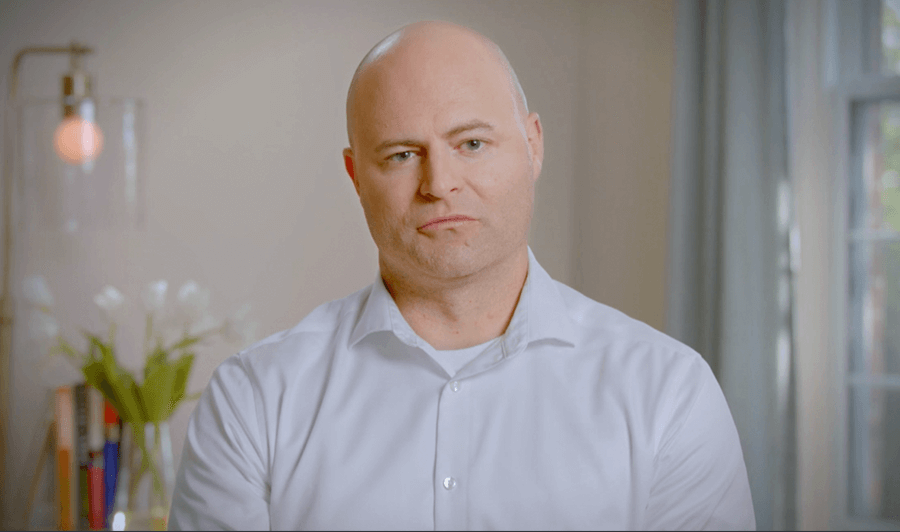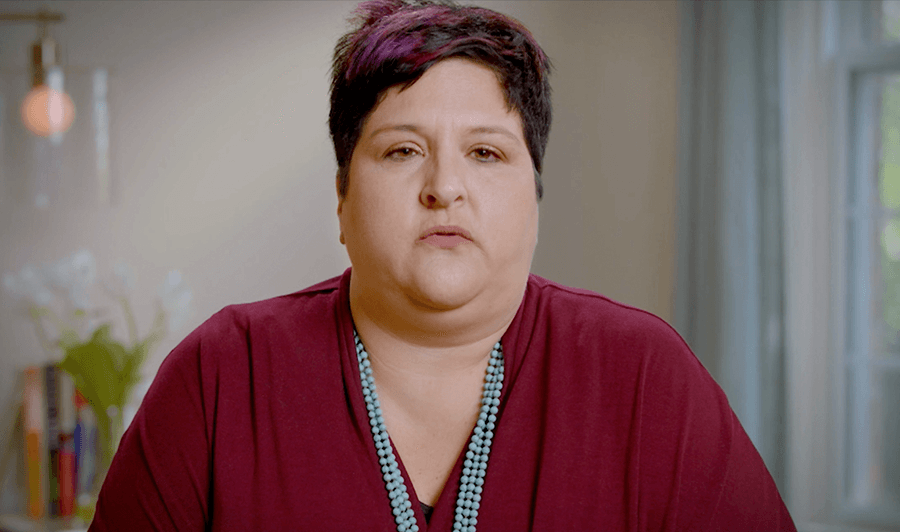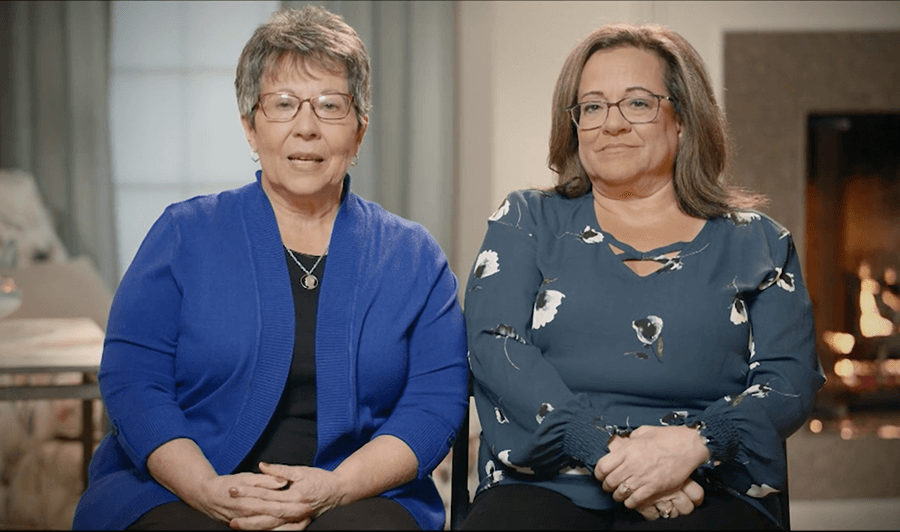
Personal Injury Lawyers Representing Victims in Indianola, Iowa
In daily life, any number of things can go wrong and cause you to get hurt. If you do get hurt, and you get hurt because of someone else’s fault, you deserve to be compensated for the injury. That’s where RSH Legal comes in. We’ve been helping people to financially recover from injuries that weren’t their fault for over 35 years, and we want to fight for fairness for you.
Our Personal Injury Areas of Practice:
What Can I Sue for in an Indianola Personal Injury Lawsuit?
In the aftermath of an accident or injury in Indianola, knowing your rights is paramount. In a personal injury lawsuit, you’re not just filing a claim; you’re asserting your right to compensation for damages suffered. It’s vital to understand what you can sue for in such a case.
Economic Damages
Firstly, there are economic damages. These are out-of-pocket expenses, including medical expenses, lost wages, and property damage. Medical expenses cover not only your current bills but also future treatment costs. Lost wages consider both past lost earnings and projected loss of future income, often relying on expert testimony. And if your property was damaged, this too can be included in your claim.
Non-Economic Damages
Next, we have non-economic damages – harder to quantify, but just as real. Pain and suffering encapsulate the physical distress you’ve endured. It’s a broad category, from lingering aches to the inability to continue cherished hobbies.
This may also include the psychological impact an injury has had, such as anxiety or sleep disorders. Remember, your emotional well-being matters, and damage to it deserves recognition.
Then there’s the loss of consortium. If your injury adversely affects your relationship with your spouse or family, the law may recognize certain types of losses to these relationships.
Punitive Damages
In some cases, you can claim punitive damages. These are awarded not just to compensate you but to punish the offender and deter others from similar negligence.
In conclusion, you can see that a personal injury lawsuit isn’t just about getting a settlement; it’s about justice, recognition, and accountability. It’s about ensuring you have the resources to heal and recover. And most importantly, it’s about standing up for your rights.
Of course, every case is unique. Your potential for compensation depends on the specifics of your situation, and that’s why having a knowledgeable, experienced attorney is essential.
Our firm is committed to advocating for you. We understand the nuances of personal injury law and will fight tirelessly for the compensation you deserve. Reach out today for a consultation and let us guide you through the process based on your specific needs.
5 Frequently Asked Questions About Personal Injury Lawsuits in Indianola
Understanding personal injury lawsuits can often seem like a daunting task. To aid in your comprehension, we’ve compiled answers to five frequently asked questions related to personal injury cases.
FAQ 1: What Constitutes a Personal Injury Lawsuit?
Personal injury lawsuits arise when a person suffers harm due to the negligence or intentional act of another. This broad category covers a myriad of incidents. These range from car accidents, slips and falls, medical malpractice, product liability, and even dog bites. The key element is that another party’s wrongful conduct caused harm, entitling the injured party to legal remedy.
FAQ 2: How Long Do I Have to File a Personal Injury Lawsuit?
Personal injury lawsuits are subject to the statute of limitations, a law that sets a deadline by which you must initiate legal proceedings.
The general rule in Iowa is that the statute of limitations is two years from the date of injury. However, the exact deadline can depend on the circumstances, so you should reach out to an attorney as soon as possible. Generally, the clock starts ticking when the injury occurs.
Understanding these time constraints is crucial, as failing to file within the prescribed limit can forever bar your claim.
FAQ 3: How Does a Personal Injury Lawsuit Process Work?
The personal injury lawsuit process begins with filing a petition against the at-fault party, formally known as the defendant. This petition outlines your case, including your injuries and how the defendant caused them.
Following this, both sides engage in a fact-finding process called discovery, exchanging information pertinent to the lawsuit.
Negotiations for a settlement may occur at any time, often leading to a resolution without going to trial. If a settlement cannot be reached, the case proceeds to trial, where a judge or jury decides the case’s outcome. The timeline varies, but understand that a lawsuit is a marathon, not a sprint.
FAQ 4: Do I Need a Lawyer to File a Personal Injury Lawsuit?
While hiring an attorney is not legally required, doing so is highly advisable.
Personal injury law is complex and navigating it without legal expertise can be challenging. An attorney can help you negotiate with insurance companies, gather evidence, understand the law, and advocate for your interests in court.
More importantly, plaintiffs with attorney representation typically receive higher settlements than those without.
FAQ 5: What Happens If I Lose My Case?
Losing a personal injury lawsuit can be disheartening. Still, it’s essential to understand that many personal injury attorneys operate on a contingency fee basis.
In other words, if you don’t win, you don’t pay attorney’s fees. This arrangement ensures that the risk is shared and that legal representation is accessible, even if you’re worried about affording attorney’s fees.
In conclusion, understanding personal injury lawsuits and the involved processes can empower you when pursuing a claim. While we’ve covered some of the most common queries here, your case’s unique aspects may raise additional questions.
That’s where we come in.
Our law firm is equipped to guide you through the intricacies of personal injury law, providing personalized advice based on your situation. Reach out today for a consultation and let us help you navigate your path to justice.
Top 5 Best Practices of Experienced Indianola Personal Injury Lawyers
Navigating the landscape of personal injury law can be complex and daunting. It’s a journey you shouldn’t undertake alone. Hiring an experienced Indianola personal injury lawyer can make all the difference.
What separates the best from the rest? Here are five best practices that seasoned personal injury lawyers adhere to.
Practice 1: Thorough Case Evaluation and Investigation
Experienced personal injury attorneys don’t rush. They meticulously evaluate each case, reviewing every detail from the accident scene to medical reports. A robust initial investigation can unearth vital evidence, strengthen your claim, and form a compelling narrative for your lawsuit. This careful approach is the foundation of a strong case.
Practice 2: Open and Clear Communication with Clients
Communication is key. Top Indianola lawyers keep their clients informed, translating complex legal jargon into plain language. They’re approachable, responsive, and considerate of their clients’ concerns and anxieties. This transparency fosters trust, aligns expectations, and ensures that clients feel involved every step of the way.
Practice 3: Effective Negotiation with Insurance Companies
Insurance companies can be formidable adversaries, often seeking to minimize settlements. Experienced attorneys have the negotiation skills to counter these tactics. They are tenacious advocates for their clients, leveraging their knowledge of the law, case specifics, and negotiation tactics to secure fair settlements.
Practice 4: Diligent Preparation for Trial
While many personal injury cases are settled out of court, the best lawyers prepare every case as if it will go to trial. This readiness shows the opposition they’re serious, which can help negotiations. And if a case does go to court, detailed preparation increases the chances of a favorable verdict.
Practice 5: Continuous Legal Education and Specialization
Laws evolve, and so do legal strategies. Top personal injury attorneys stay updated with the latest legal developments and refine their expertise. By focusing on personal injury law, they keep their skills honed and relevant, offering clients the best representation.
In conclusion, the practices of experienced personal injury attorneys revolve around thorough preparation, effective communication, skilled negotiation, and dedication to ongoing learning.
If you’re facing a personal injury lawsuit, you want a lawyer who embodies these traits. Our law firm is home to such lawyers, committed to upholding these best practices. Contact us today for a consultation and experience the difference an experienced personal injury lawyer can make.
Types of Cases RSH Legal Handles:
- Medical Malpractice
- Brain Injury
- Car, Motorcycle, and Bike Accident
- Worker’s Compensation
- Nursing Home Injury
- And More
RSH Legal, a Law Firm with Offices in Des Moines, Cedar Rapids, and Dubuque, Handles Personal Injury Cases Throughout Iowa.
If you’ve been injured and the injury was someone else’s fault, there is no reason not to call us. We’ll evaluate your case for FREE. After evaluating your case, if we accept it, you still won’t pay anything unless we’re successful and win the case. So call us today to get your case evaluated at 319-409-6575.

Tim Semelroth
Board-Certified Trial Attorney

Pressley Henningsen
AV-Rated Trial Attorney
A car came through the median and we were hit head on. Every bone in my body from my lower jaw down to the bottom of my feet was broken. My medical bills were in the hundreds of thousands of dollars. I can’t imagine going through something like this without someone like Tim or RSH Legal.
See more Client ReviewsClient Reviews









